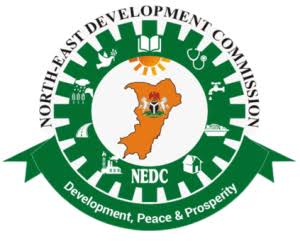At the peak of the Boko Haram insurgency which had Borno state in the thick of it and, also, considering the sheer bestiality of the methodology of the terrorists, the violence, killings and destruction they unleashed on the entire North East, not a few were astounded at the bent of mind of those elements who derived criminal pleasure in inflicting maximum pain.
Nigerians were similarly alarmed at the extent those characters could go to dramatise their extremist viewpoints not just in religion and education but also the political hue the terrorists cast on their ambition to build a caliphate run on the basis of their warped perception of religion.
It is no surprise, then, that the North East Development Commission (NEDC) set up by the federal government to address the development needs of the area in the wake of the devastation brought about by the terrorists, thought it fit to make the study of violent extremism of special interest. The idea is to apply intellectual effort in understanding what drives those obnoxious thoughts. It is an area of study that will eventually benefit not just the North east but other parts of the country under threat of views that are decidedly unwholesome.
Justifiably, in our opinion, the commission committed huge resources in collaborating with the University of Maiduguri in this regard by providing not just the needed infrastructure but research grant that will enable them look into the use of herbs for therapeutic purposes. The Centre for the study of Violent Extremism is saddled with the responsibility of carrying out research in that area of study and make available the outcome of such intellectual investigation to policy makers for implementation.
It is commendable, in our view, that the university itself is positioned strategically for that study which will be based on the experiences it gathered by being the target of those terrorists. It is from this perspective that it is excited at the prospect of being called upon as a victim to help fight violent extremism from its roots, which is the thought process, because most criminal intents are nurtured in the mind.
Similarly, we are enthused that in addition to understanding the mindset of the terrorists, the commission in its effort to cleanse the mind of the youth who form the bulk of these criminals, is also zealously going on with plans to shut down the pool from which they recruited their members – the out-of-school children. In the thinking of the commission, denying the terrorists access to recruits is one sure way of addressing the challenge terrorism poses in the geo-political zone and elsewhere.
It is in this context that the commission is devoting a huge chunk of its lean resources to building what it describes as mega schools in all the 18 North east senatorial districts each with a capacity to hold 1200 students complete with hostel facilities, laboratories and perimeter fence for security in and around the schools.
The idea, according to the commission, is to change the narrative as presented by the terrorists that education is haram, forbidden, and present an alternative viewpoint that will discourage the young ones, already in school, from being swayed by harmful doctrines as preached by the criminals.
We consider it important to point out another aspect of the commission’s activity geared towards addressing the impact of terrorism on the people of the area. This is the provision of a health facility, Burns Centre, that caters for victims of such acts. Beneficiaries of this facility built and donated to the University of Maiduguri Teaching Hospital by the commission include, not just the locals, but also soldiers and care givers caught in the web of explosives and other weapons applied by the terrorists.
A study of the commission’s programmes and policies indicate a deliberate plan to combine the reconstruction and rehabilitation of infrastructure destroyed by the terrorists with the rebuilding of the human beings harmed by insurgency.
It is impressive, in our opinion, that the commission, in so short a time in its existence has been able to initiate efforts at peacebuilding and support to safe school initiative. There are also psychosocial support services, transitional justice support in the areas of de-radicalisation, dis armament and re-integration.
Already, there is, in the works, a North east stabilisation and development masterplan which deliberately aligns with the development plans of member states, sectoral development plans and roadmaps of federal ministries, departments and agencies (MDAs) as well as projects of development partners in the zone. This masterplan contains pillars, schemes, programmes and projects anchored on the commission’s strategic and operational framework. The commission’s policy of embarking on projects it can immediately accommodate in its budget has helped in avoiding abandoned projects’ syndrome that is the bane of similar institutions elsewhere.
The commission, as part of its commitment to transparency and accountability, recently hosted journalists at a parley during which it led participants into its operations’ strategies. In the opinion of this newspaper, it is striving hard to avoid the pitfalls of regional bodies like Niger Delta Development Commission (NDDC) and Oil Mineral Producing Areas Development Commission (OMPADEC) before it. This is good for an area in urgent need of real development.





